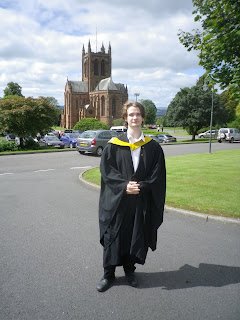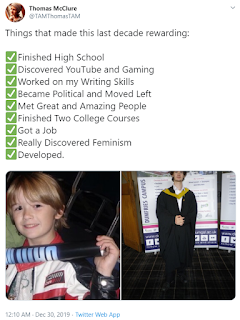My Introduction to the Young Playwrights Programme
The following blog is from the first article I wrote for the Bunbury Banter Theatre Company’s Young Playwrights Programme, published on the 12th of February, 2020.
I love writing, I love stories, but I’d be lying if I said I always respected it.
Right before my first school play I used to think plays were easy to write, when I was a kid doing school shows in primary and all that. A character's name followed by what they say, and that was it.
If that was all it took then how come my short story about how my summer was wasn't a bestseller already? That got me kind of blue.
When reading my lines for the shows I'd think that it was very simple; they didn't have to use describing words, they didn't use 'said' or the thousand other variations of it, there wasn't any great action or many settings or much music or CGI or any need to stress over proper punctuation marks in sentences. I also thought quicksand and the Bermuda Triangle would be much more important in adult life so I wasn't the most aware or knowledgeable kid. I was a kid, it wasn't a flaw to dislike plays, the schools forced you into them and so it was natural to rebel against it, just the way things are.
As I got older and English classes became less about letters and words and more about essays, structure, and all the interpretations you could get from the word 'blue', I started to see plays in a greater light, but I still didn't think much of it. I had begun writing (well, throwing half-baked stolen ideas onto scrap paper and thinking myself a god) and started working on my ability to describe settings in detail and the formless thoughts of the characters and all the flowery abstract similes to passionately explain how one character could walk from one side of the room to the other; fun fact, you can drag that out for six pages, it was just the worst. I still wasn't a fan, often rejecting the idea of them or anything to do with them, which of course ended up hurting my own writing skills at the time, but I wasn't a bad guy so I didn't step on anyone else's fun. Since I was engulfed in this kind of train of thought, plays where there was very little descriptions or directions seemed to me like lazy writing, however I could kind of appreciate the weight each line could hold. English class may not teach you subtext, character arcs, the morals of the stories, set ups and payoffs, or scene/paragraph structure, but you can't deny the power of the word 'blue'. At this point, the rejection of the craft was probably a problem.
In my later teen years, I was obsessed with storytelling, the craft of it all, and I had thrown myself into every medium of writing, every medium but playwriting. Even at an age where I had no excuse to be ignorant of it, I stayed away. I wasn't a kid anymore, so my lack of really getting it was on me, and my friends who loved theatre and plays and all forms of writing rightfully criticised me for such. It's fine to not like something, but I seemed to reject as not even a form of good writing. I thought I was better than it. I also thought I was better than boxers because I was that guy who would casually say 'just dodge' so I still wasn't that aware of how things really were.
When they asked me to lay out why I didn't like it, I told them that it was boring (action and set-pieces were limited), that it was cheap (they couldn't have a big spectacle or groundbreaking visual effects), that it was slow (often just two people talking), that there was no conflict (no big bombastic fights whatsoever), that there wasn't any arcs (you couldn't change over the course of a glorified conversation), and that there were few themes (how could you state the theme if you didn't have any abstract omniscient narrators to openly declare it?).
Then I was introduced to Hamilton.
The Broadway musical following the life of Alexander Hamilton, a founding father of the United States of America, was introduced to me as something that would disprove all my pretentious arguments; and they did. It was action-packed with great shifting settings. It was beautifully crafted with wonderful outfits and clever use of practical effects. It was fast and full and even when only listening to the songs, several people just talking to one another with a tune in their voice, it was still very entertaining. The conflict was clear and tense between the main characters and showed you could end a story without a violent battle between armies. It had two masterful character arcs where both characters got hurt from their respective weaknesses which led them to appreciate the other's traits more and more until by the end of the play both characters had swapped their core philosophies in the final moments. The themes were so clear that they were literally sung and yet didn't seem like they were just declaring the morals to us, but instead affirming their own virtues to themselves.
This new information triggered a revelation in me. I changed my own tune and fell into all sorts of works, from Shakespeare to StarKid, from Samuel French's Electrolytes to Phoebe-Waller Bridge's Fleabag. All it took was one great play for me to start noticing how much detail and care goes into the craft of every little play. Even the plays that did have most of the (what I thought were) flaws in playwriting, like the one-woman show of Fleabag, turned out still be phenomenal for so many more reasons. My eyes were opened to the way things really were, and through that I found a thousand ways to make my other works, unrelated to plays, so much better. Plays are not easy to write, but if they were easy then there would be no challenge to help improve one's skills, and so since I've started learning about the craft I have learned to appreciate more and more of what has gone into every line written, therefore revealing more about art that can be applied to more than just plays. My dialogue improved in my writings, my scopes became deeper rather than broader, my descriptions became simpler, and my perspective was changed. Now there's a character arc for you.
I may not have given the art form the respect it deserves in my past, that I regret, but I have changed my tune and I am always working to open my eyes to new ways of storytelling and new perspectives on conveying certain things to the audience. I hope working in the Young Playwrights Programme will help me deepen my understanding of theatre, therefore refining my perspective on playwriting.
The way things are will never last, that's a good thing, otherwise you'd never let things change and you'd never grow. You have to respect what's different, in doing so you may come across some of the greatest things in life. I regret not seeing that sooner, though it's better late than never and I appreciate proof that I can grow creatively.
Young Thomas wasn't the brightest but he was just starting, when you change for the better and look back to your former self, it's seldom a favourable sight, but it's a good one because it shows change. It's a little grief, a little pride, a little cringe, and a little hope. There's a word for that! Blue...





